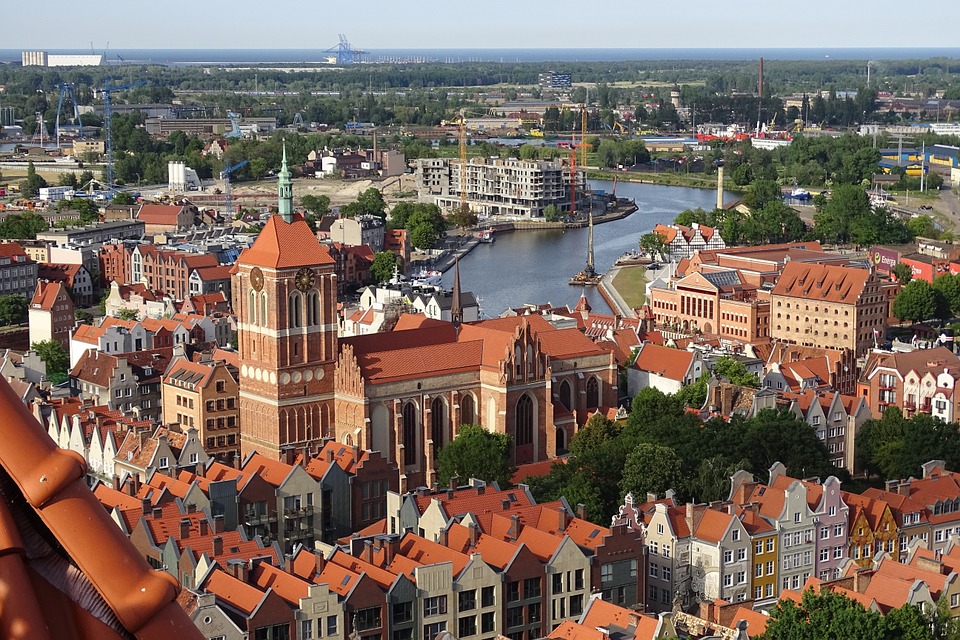
Poland is a sovereign country in Central Europe. It is a unitary state divided into 16 administrative subdivisions, covering an area of 312,679 square kilometers with a mostly temperate climate.
With a population of over 38.5 million people, Poland is the sixth most populous member state of the European Union. Poland’s capital and largest city is Warsaw.
Poland is a regional and an emerging world power. It has a very dynamic economy in the EU and also the eighth largest one with a very high rank level of the Human Development Index.
The Polish Stock Exchange is the larger and one of the most important one in the Central and Eastern Europe.
Poland is a democratic country with very high standards of living, safety, education and also the economic freedom. Also Poland is a leader in school educational system in Europe, which provides free university education, state- funded social security and a universal health care system for all citizens.
The top income tax rate is 32 percent, and the corporate tax rate is a flat 19 percent. Other taxes include a value-added tax and a property tax. The overall tax burden equals 31.9 percent of total domestic income.
Government spending has amounted to 42.1 percent of total output (GDP) over the past three years, and budget deficits have averaged 3.4 percent of GDP.
With a population of about 38 million and GNI per capita of nearly US$12,400, Poland has the largest economy in Central Europe. Since joining the EU, the country’s ambitions have been marked by the desire to rapidly catch up with the core of the EU in terms of economic growth and living standards.
Economic sectors:
- Services
- Industrial Sector
- Agriculture
- Agriculture is a significant sector of the Polish economy. In terms of the contribution to GDP, agriculture is the fourth biggest sector in the country. Poland is the sixth food producer in the EU.
- The Automotive sector is one of the key branches of the Polish economy. Its significance is reflected in the market. The automotive manufacturing industry is the fourth largest industrial employer in the country.
- Business Services Sector, consisting of BPO, IT, SSC and R&D companies, is one of the fastest developing Industries in Poland. It benefits from global trend of centralization of back office functions, where availability of skilled and dedicated employees together with labor costs arbitrage are the most important factors when deciding about future locations of business.
During the last years, Business Service Sectors had the largest number of working people in companies with both Polish and foreign capital.
Why You Should Choose to Invest in Poland
Strong Points
- It is a fast-growing economy;
- It’s located in central Europe;
- Has a multilingual and skilled workforce whose productivity is rising rapidly;
- Has cheap labor costs;
- Is a well-managed country
All these make Poland an internationally attractive country.
Weak Points
- Has slow administrative procedures;
- Foreign investors have freedom of establishment. They can take a majority holding in the capital of a Polish company is allowed, as long as an authorization is obtained.
Investment opportunities
- Machine building;
- iron and steel;
- coal mining;
- chemicals;
- shipbuilding;
- food processing;
- automobile;
- Information technology;
- business processing centers;
- environment and green building;
- cyber -security;
- Software for mobile applications;
Poland welcomes foreign investment as a source of capital, growth, and jobs, and as a vehicle for technology transfer, research and development (R&D), and integration into global supply chains.
The government’s Strategy for Responsible Development identifies key goals for attracting investment, including improving the investment climate, maintaining a stable macroeconomic and regulatory environment, and high quality corporate governance, including in state-owned companies.
Foreign companies generally enjoy unrestricted access to the Polish market. However, Polish law limits foreign ownership of companies in selected strategic sectors, and limits acquisition of real estate, especially agricultural and forest land.
Limits on Foreign Control and Right to Private Ownership and Establishment
Foreign and domestic entities can establish and own business enterprises and engage in most forms of remunerative activity per the Law on Freedom of Economic Activity.
Forms of business activities are described in the Commercial Companies Code. Poland places limits on foreign ownership and foreign equity for a limited number of sectors, for example, Polish law limits non-EU citizens to 49 percent ownership of a company’s capital shares in the air transport, radio and television broadcasting, and airport and seaport operations sectors. Licenses and concessions for defense production and management of seaports are granted on the basis of national treatment for investors from OECD countries.
